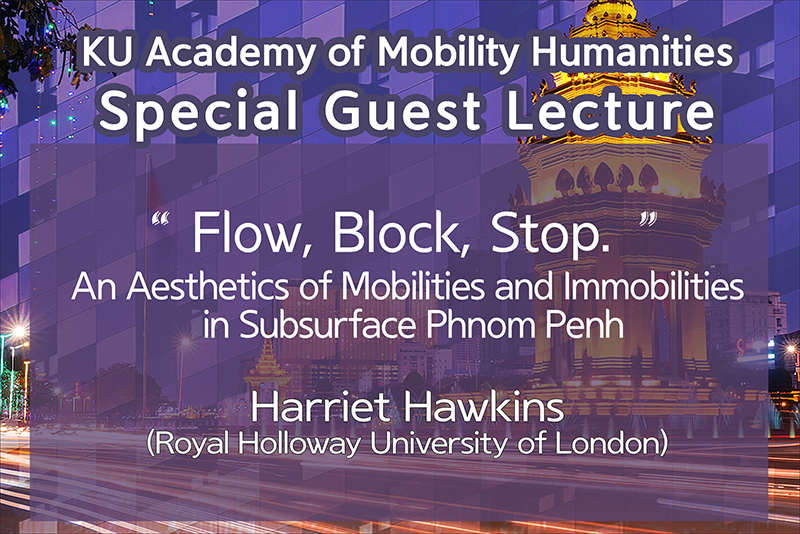Flow, Block, Stop: An Aesthetics of Mobilities and Immobilities in Subsurface Phnom Penh
On the 15th June, the Humanities Korea Plus (HK+) Project of the Academy of Mobility Humanities (Director: Professor Inseop Shin) at Konkuk University held an invitation lecture of overseas scholars in mobility humanities, with Professor Harriet Hawkins, Director of the Center for the Geohumanities at Royal Holloway University, London, UK, under the theme of “An Aesthetics of Mobilities and Immobilities in Subsurface Phnom Penh.”
The lecture was a part of UKRI (UK Research and Innovation)’s “UK and South Korea Social Science, Arts, and Humanities Connections.” Professor Hawkins is well known for creative-based geographical methodologies at the intersection of geography, humanities, and aesthetics. Representative books include Geography, Art, Research: Artistic Research in the Geohumanities (Routledge, 2020), Creativity: Live, Work, Create (Routledge, 2016), and For Creative Geographies: Geography, Visual Arts and the Making of Worlds (Routledge, 2013).
In this lecture, Professor Hawkins examined the history of imperialism intertwined with the sewerage system in Phnom Penh, the capital of Cambodia. By examining a broad view of Southeast Asian countries’ relationships with powers such as the French colonial period in the 19th century, the former Soviet Union in the 20th century, and Japan and the United States in the 21st century, Prof. Hawkins explained the importance of infrastructure in urban mobility and immobility, as well as urban aesthetics, and emphasized the importance and need for research on “academic infrastructure.”




